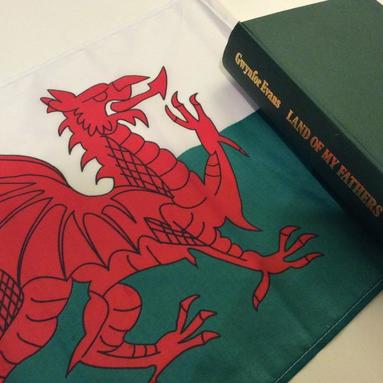
Gwynfor Evans was in turn Vice-President, President and Honorary President of Plaid Cymru, the Welsh national party, and the establishment of the Welsh speaking TV channel S4C is attributed to his threat to go on hunger-strike, forcing Margaret Thatcher to make good on the Conservatives’ manifesto promise which they were keen to renege on.
I married a Welshman in 1980, and spent many happy times in the years since visiting family and friends in South Wales, where I have always been received with the warmest hospitality. As a reader, over the years, I’ve read short stories, novels, poems about Wales, the Mabinogion, some 20th century history, seen plays, enjoyed seeing the wonderful Max Boyce live, listening to Welsh music, etc, but Evans’ book has been a real eye-opener for me about the illustrious and unique spiritual, cultural and social history of Wales, its people and its language. I have felt both deeply sad and very angry sometimes at learning of the damage done to them by what Evans terms (and I must say, I can only agree) English imperialism. I have also been moved by the beauty of the poetry quoted.The book consists of 453 pages, and is written accessibly for the lay reader - Evans was not an academic, but a lawyer and MP, so he quotes from Welsh historians whose work has informed him. There’s a great deal of ground covered, and I feel stimulated to go on to read more deeply and widely. I am also hoping to enrol to learn (a long-held ambition) the Welsh language - . It has survived against all odds in Wales, given the onslaught of English policies, and since devolution, efforts have increased to support it, but it sadly has a long way to go to come anywhere near the level in the mid 19th Century (before the advent of the Welsh Not), when 90% of the population was Welsh-speaking.

 RSS Feed
RSS Feed
